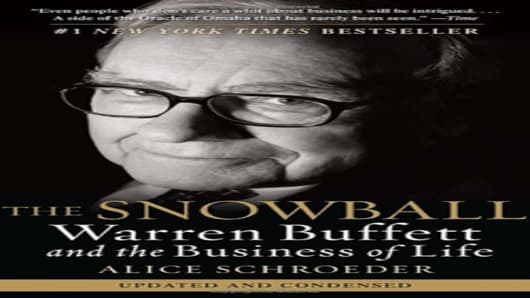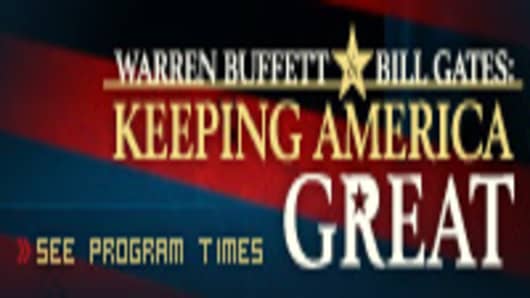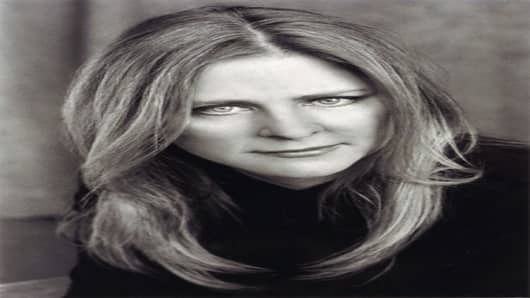Alice Schroeder's authorized biography of Warren Buffett is now available in a trade paperback edition.
In an "updated and condensed" version of The Snowball: Warren Buffett and the Business of Life, Schroeder adds a new 31-page chapter covering events after the hardcover's publication last year.
She details Buffett's reaction to the credit crisis as it peaked in the fall of 2008, Barack Obama's election as President, and Berkshire Hathaway's loss of its coveted triple-A credit rating.
Schroeder candidly describes how Buffett made a "series of characteristic brilliant moves interspersed with some surprising errors."
His deals "would enrich Berkshire shareholders for many years to come." The financial crisis, however, "left Berkshire a weaker company financially" and "undercut Buffett’s reputation as a nearly infallible manager."
With thanks to Bantam and Random House, here is an excerpt from THE CRISIS: The decline of Berkshire Hathaway's stock from Triple-A status, by Alice Schroeder:
As the financial crisis evolved, the lame-duck Bush administration and the new Obama administration followed a consistent course under Federal Reserve Chairman Benjamin Bernanke and Treasury Secretary Timothy Geithner, with the Fed injecting trillions of dollars into the U.S. banking system, trying to forestall deflation—chronic falling prices such as occurred in 1932. The still unfolding crisis revealed its complex brew of causes, including artificially low interest rates, foolish borrowing by businesses and individuals, foolish lending by banks and investors, overreliance by institutions on complex financial instruments, aggressive behavior by derivatives traders, conflicts of interest at the banks being paid as agents to package loans sold to them by originators and resell them to investors, a climate of deregulation, lax oversight and enforcement by regulators, abdication of responsibility by rating agencies, inadequate capitalization of bond insurers, investor indifference—in other words, effects of all the normal dysfunctions that precipitate a bubble.
Of the responsible parties, it was the banks and AIG that earned the public’s greatest ire, while Buffett became the public’s greatest symbol of financial responsibility.
Treasury yields soon reached zero, but the flood of money failed to open the channels of business lending; credit remained virtually nonexistent. Buffett, who was at the time acting as the economy’s greatest cheerleader, lent at interest rates that in some instances bordered on usurious—$150 million of twelve percent notes in Sealed Air; $300 million of Harley-Davidson debt for a fifteen percent interest rate; $300 million of ten-percent contingent convertible senior notes from USG; $250 million of Tiffany bonds at ten percent; and a $2.7 billion, twelve-percent perpetual convertible stake in Swiss Re that would give Berkshire a thirty-percent ownership in the insurance giant.
This latter move baffled insurance industry insiders, including Swiss Re employees. Swiss Re was General Re’s biggest competitor; observers concluded that, on any terms, the investment to prop up Swiss Re made no sense because of its negative long-term strategic consequences to Berkshire—unless Buffett ultimately meant to take over Swiss Re and merge it with General Re. In the past, however, Buffett had made opportunistic insurance investments that worked against Berkshire’s long-term interests. Challenged on this, he would respond, “If we don’t do it, somebody else will.” Thus it was equally likely that there was no strategy whatsoever behind the deal besides extracting some fast cash from the pockets of the Swiss.
Throughout, Buffett became an even more frequent presence on CNBC and other networks. He filled the role of America’s statesman and father figure during the financial crisis, but he had also fallen into the trap of competing for attention instead of trusting that his sterling record would bring it to him. “Dignity, Warren, dignity,” counseled one of his friends—but Buffett had never wanted to be dignified; he had never minded looking silly if it would get people to pay attention to him. He was a performer and a showman, and now he feared the show might end. He would keep on giving as many performances as possible while there was time. And indeed, his profile grew and grew in proportion to how often he appeared on the magic medium of television.
All this was not only personally effective—Buffett was his own best publicist—but also understandable for someone his age, until his marathon performances on CNBC resulted in some serious gaffes: criticizing newly elected President Obama’s performance, giving advice to the White House (the Shoe Button Complex, something that Buffett had heretofore spent a lifetime avoiding), and a claim that he, like everyone else, had thought housing prices could only go up—an absurdity that raised eyebrows.





